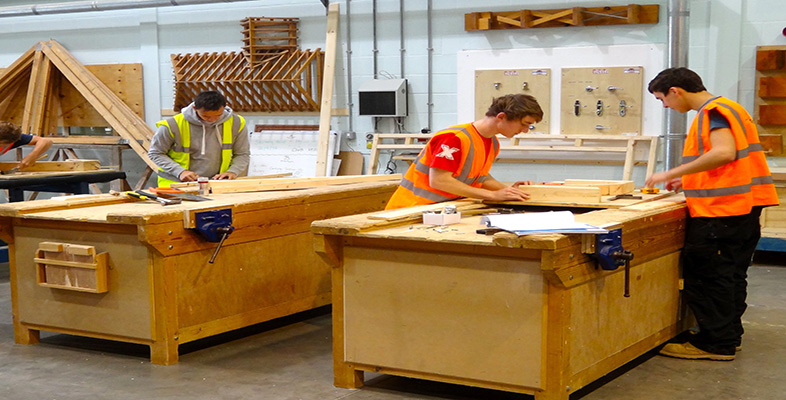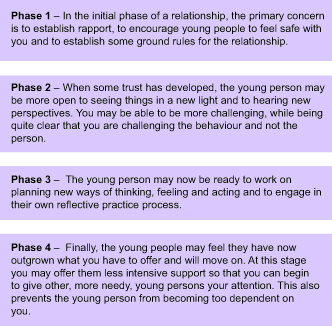2.2 The stages of relationships
In the first activity you read about helping relationships and how we need to know ourselves in order to act as a good role model to young people. You need to cultivate certain skills in yourself, as you will be acting as this role model (Ingram and Harris, 2013). Through you, young people can learn and develop skills such as:
- caring and being cared for
- disagreeing and remaining friends
- negotiation and compromise
- developing relationships that are open, honest and based on trust.
By helping young people to learn from their successes and failures, you support them in developing a mind-set of being able to manage relationships rather than them feeling as though they’re at the mercy of others.
The way in which you respond to young people may well depend on which phase in the relationship you have reached. If you have only just met them, building an effective relationship will involve using effective communication skills, listening attentively and using appropriate body language to build up trust and respect. Alternatively, you might be at the stage where you have got to know a young person really well, you have supported them through change and they are ready to move on. A useful model that many practitioners adopt in order to reflect on their relationships is that identified by Gerard Egan (2002). Egan identified different stages of relationships and his work provides a useful model to analyse the different stages in our own relationships with young people. We have summarised the eight steps Egan proposed into four phases, as shown in Figure 4.
How comfortable are you with the different phases or stages of relationships? Relationships go through different phases, and you are likely to feel more comfortable with some than others. You need to consider carefully why this is so, and to ensure that you do not neglect an important phase just because you are less comfortable with it.
If you prefer the early phases of relationships (rapport building and offering new perspectives), you may regard the later phases as rather instrumental – focused on ‘changing’ young people for the ‘better’ (perhaps meeting some government agenda) rather than allowing them to use the organisation for their own purposes (which might simply be for rest and relaxation).
If you feel most comfortable in the earlier stages of the relationship, you may feel uncomfortable about the more ‘challenging’ aspects as the relationship develops. As you saw earlier, in the styles for managing conflict, some people do their best to avoid any form of conflict, seeing it as almost wholly negative rather than as something that might be very valuable if appropriately handled. In developing effective relationships you will need to have a range of skills for the different stages of the relationships you have. You also need to build up your confidence and competence in relationship building and the ending of a nonprofessional relationship.

